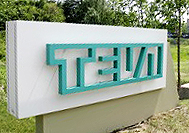Generic giant Teva will purchase Auspex Pharmaceuticals Monday in a deal worth $3.5 billion. At the heart of the deal is Auspex’s SD-809, an investigational medicine for treating abnormal involuntary movements in conditions such as Huntington’s disease, Tourette’s syndrome and Tardive Dyskinesia.
No stranger to drugs that treat the central nervous system, Teva hopes to leverage its existing infrastructure to accelerate the development and commercialization of SD-809. The Israel-based drugmaker currently markets Azilect for Parkinson’s, Copaxone for multiple sclerosis and Nuvigil for excess sleepiness from narcolepsy, sleep apnea or night shift work. Sales of Copaxone reached $4.2 billion in 2014, while Azilect and Nuvigil saw combined sales of $816 million.
Teva’s pipeline is also heavily invested in CNS. The company is currently investigating laquinimod in two Phase-II trials for use in Huntington’s disease and progressive forms of multiple sclerosis as well as in a Phase-III trial for relapsing-remitting MS. It is also researching pridopidine for use in Huntington’s disease in a Phase-II trial.
SD-809 could help fill the shoes of Copaxone, which will begin to face generic competition in the coming months. The Supreme Court voted in January to protect Copaxone from rival drugmakers until September. The 7-2 ruling gives Teva more time to switch patients to its newer three-times-per-week formulation, Copaxone 40mg — as opposed to Copaxone 20mg, which requires a daily injection.
Jefferies analyst David Steinberg wrote in an investor note last week that new Copaxone has averaged a conversion rate of 65.4% over the past four weeks. Auspex reported in its fourth quarter earnings report that it expects to file SD-809 by mid-2015.








